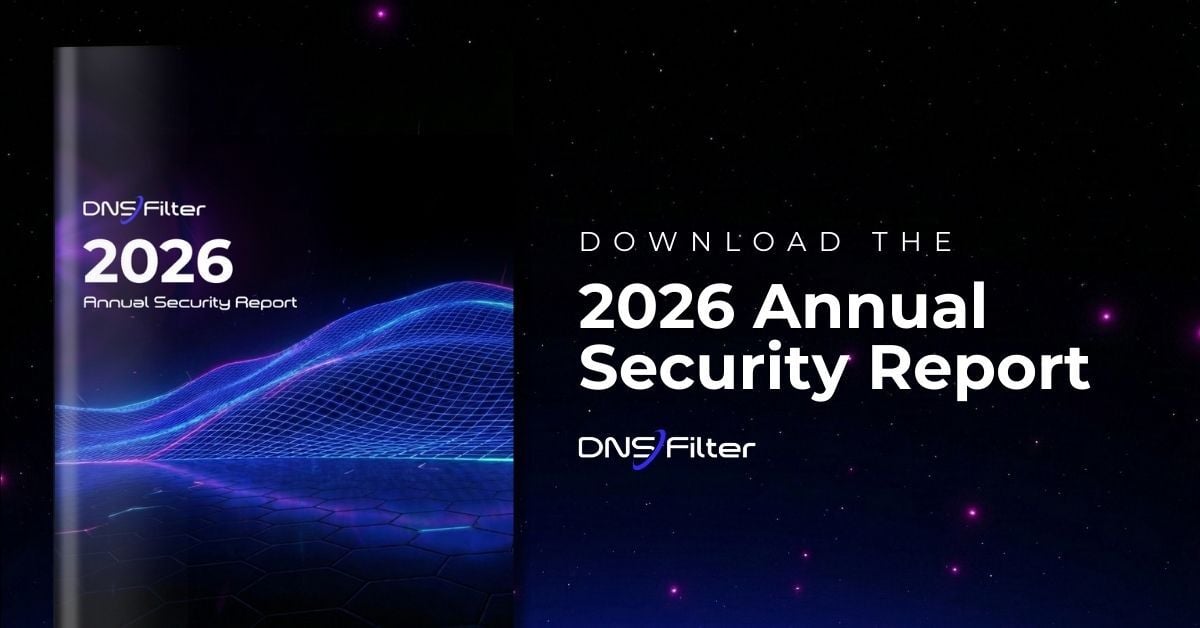DNSFilter Supports Quad9 in Sony Music Injunction Case
by DNSFilter Team on Jul 27, 2021 12:00:00 AM
(WASHINGTON, D.C.) July 27, 2021 -- In June 2021, Sony Music filed a formal injunction against Switzerland-based nonprofit DNS resolver Quad9. Sony Music is requesting Quad9 to block a particular website domain that houses a link to a peer-to-peer site where an Evanescence album can be downloaded. Quad9 is objecting to this injunction on the grounds that this is an overreach on Sony’s part, where they are involving third parties in matters of copyright infringement—Quad9 does not condone copyright infringement, but does not believe they are responsible for policing internet content when they are focused on security.
DNSFilter CEO Ken Carnesi stands with Quad9 and supports their objection.
Said Carnesi, “As the CEO of a company that provides resolver services in the DNS security space, I support Quad9’s objection to the injunction filed against them by Sony Music. With this case, the courts are creating an environment where litigation of third-party security providers can become the norm. Every DNS resolver service should be outraged.”
Uncovering the Truth Behind the Injunction
The injunction names only one site in its injunction. The site in question does not actually host any content infringing on a copyright, but instead only hosts links to peer-to-peer domains.
Quad9 could incur a fine of up to $298,356.00 (€250,000) for not blocking the site. If unable to pay the fine, Quad9 could be subject to a prison sentence of at least 6 months but not exceeding 2 years. There is no detail in the injunction around how many times Quad9 might be responsible for paying this amount. So it is unclear if this would be a one-time fine for failing to comply or an offense where Quad9 could incur multiple penalties.
Carnesi agrees this could set a dangerous precedent where companies uninvolved with piracy will find themselves responsible for policing online content, adding significant costs and risks to platforms meant for cybersecurity intended to be used for protecting users from malicious content such as ransomware. According to a recent study by the Global Cyber Alliance, over 33% of data breaches analyzed could have been mitigated were DNS protection in place.
“Both Quad9 and DNSFilter’s main objective is to stop users from accessing malicious content online, such as malware, phishing, and botnet sites. As Quad9 addressed in a statement, complying with this injunction will detract from their true mission as it will add unnecessary overhead to the operational costs of their platform, and diminish the quality of the user experience.”
About DNSFilter
DNSFilter is a venture-backed startup that provides edge-layer security via DNS for modern companies that are no longer tied to a central office. They protect over 15,000 organizations from ransomware, phishing, botnet, and other cybersecurity threats—all while running on the fastest network within the DNS security industry. DNSFilter identifies threats up to 154 hours faster than competitors, and uniquely categorizes more than 76% of domain-based threats, including zero-day threats.
Categories
 DNSFilter’s Annual Security Report Highlights 30% Increase in Threats
DNSFilter’s Annual Security Report Highlights 30% Increase in Threats
Users are encountering as many as 66 threats daily—and new domains are a top culprit
 DNSFilter Sets New Benchmark for CSAM Protection with 2025 Year-End Blocking Results
DNSFilter Sets New Benchmark for CSAM Protection with 2025 Year-End Blocking Results
Major year-over-year increase in CSAM detection and prevention highlights expanded safety innovation in the wake of explicit GenAI content
 DNSFilter Strengthens Leadership Ahead of 2026 with New Chief Revenue Officer Rich Scott
DNSFilter Strengthens Leadership Ahead of 2026 with New Chief Revenue Officer Rich Scott
WASHINGTON, D.C. – Dec. 2, 2025 – DNSFilter, a global leader in protective DNS and content filtering, announced today that Rich Scott has joined as Chief Revenue Officer (CRO.) Scott brings more than 19 years of sales and executive leadership experience, including multiple prior CRO roles, and a track record of driving high-impact revenue strategies across cybersecurity organizations.Scott most recently served as Chief Revenue Officer at Critical...


